The Collaboratorby M.R. Subias The battered taxi up ahead weaves around a red mini and I know our guy’s spotted us. I stomp on the Mustang’s gas so our perp, Eddie Mears, can’t pull away from our headlights and lose us. I glance right. Kah-Haas my seven-foot-tall Slitha partner, knees jammed up under his scaly chin in a seat built for humans, calls dispatch for backup. If our target keeps going straight, maybe some other feds will cut him off, if any are around. The local cops here in L.A. always take just a bit too long to assist. They don’t want other humans to think they’re too eager to collaborate with our alien masters. For them, there’s a fine line between doing the job and being a collaborator. The taxi heads straight at a slow scooter but before it hits, swerves a hairpin left. A couple holding hands in the middle of the crosswalk freezes in the headlights. The taxi fishtails on wet pavement and skids forward. A pedestrian goes down. A woman screams. Kah-Haas tells dispatch to send an ambulance. In a better world, maybe I’d stop and help, but that’s not the one I get to live in. I slow a little, barely enough to turn clean and miss the pedestrians, then pull straight again. I’ve fallen back, but still see our target. Our perp makes a sharp right, but I’m ready and take it fast enough to keep up. Out of the corner of my eye, I see my partner’s long, green fingers on his gun, but he doesn’t draw it. These days, Kah-Haas values human life enough not to shoot from a moving car and endanger bystanders. And, if the tip we got is good, we need to take this guy alive. Seems our quarry is trying for a secret escape route for people running from the law. And the same source told us somebody skipped town that way a couple weeks ago, carrying something the Slitha badly want to get back. We’re gaining on the taxi and our guy brakes hard. The taxi fishtails again, skids, then rear-ends a parked truck. A second later, the driver’s door flies open. I can tell from the broad shoulders the guy who jumps out is Mears. He hits the ground running, into the January darkness swallowing the UCLA campus. We pull up behind the dead taxi. I don’t wait for Kah-Haas, just get out and run after Mears. My partner needs extra time to pull himself out of a car made for smaller beings, but his long legs always help him catch up. I run down the walkway, trying not to lose the perp in the darkness. A minute later, Kah-Haas’s voice crackles painfully loud from my earbud. “I see you. Do you have eyes on the suspect? Over.” “Roger that. Over.” The campus hasn’t completely shut down since the Slitha invaded fifteen years ago, but there’s more dark than light here. The glow from inside a three-story building outlines our man when he opens the door to go in. The perp ducks inside. “Kah-Haas, I’ll go in. You go around. Over.” I jerk the door open and see movement at the end of the long hallway. I run past a few humans talking. They do a double take when I run by yelling, “FBI, stop right there!” The door at the far end of the building closes. A human leg disappears into the stairwell. I run to the end of the hallway, but Kah-Haas’s outside so I take the stairs up. I get to the second floor and draw my Glock. I see a bathroom and hear something inside. I bolt for the door, shove my way in, and raise my gun. “FBI. Freeze!” In front of me, the rust colored Slitha facing the mirror over the sink does just that. A couple seconds later, the loose skin under the sides of his jaw puffs out and flushes red. It turns around, slowly. The alien’s huge, yellow-green eyes with their black slit pupils look down on me. I lower my Glock and swallow the lump in my throat. “Sorry, sir. I’m in pursuit of a criminal.” The alien lightly brushes long, sharp black nails down a tweed jacket tailored to his eight-foot height. “Allow me to introduce myself.” The alien speaks perfect English. “I am Professor Sath-Osh.” He sneers down at me. “And there are few crimes greater than a human threatening a Slitha with a gun.” I pull my earbud out and crank up the volume so we can both hear Kah-Haas arresting Mears. I smile the practiced, professional smile I always use for our masters. “Please, sir, my apologies. My senior partner is of the Race and I’m only following his orders - Kah-Haas can explain why I overreacted. After all, humans must obey their Slitha superiors, and I was just doing my best.” His smile is cruel. If Kah-Haas can’t smooth things over, being out of a job will be the least of my problems. # Work ends and I head home. Leticia and the boys are asleep. I grab a glass and a cheap bottle of bourbon and sit by the front window cradling my Glock. I drink, look into the darkness, and wait. Slitha Internal Security could be here any time. I feel the cold metal in my hand and think about who I’ll shoot when they finally come for us. Or just me, if I’m lucky. Our masters would consider eating a bullet honorable compensation for failure if one of them did it. But they look down on humans, so from me it’d just be the act of a coward. And a mortal sin. At least that’s what they told me when I was a kid. I look down at the Glock, then towards the back of the house where my family sleeps. How far would I go to keep Leticia and the boys from dying by inches in a Lizard concentration camp? I holster my Glock, fill my glass, take another drink, and wait. Dawn opens its eyes and Internal Security still isn’t here. Maybe pointing a gun at one of our conquerors hasn’t earned me an all- expense paid trip to a Slitha concentration camp. Or the security goons might just be giving me time to sweat. I leave while my family still sleeps. # First thing that morning, Kah-Haas and I are standing in Deputy Director Curtis Booker’s office. Our boss’s snarling grimace tells me he’s furious and that his ulcer’s on fire. “Listen up, you miserable excuse for federal agents, you caught your suspect but thanks to you, the Bureau’s in a whole new world of hurt.” He shakes his head. Booker rubs his temples, scowls at me, then shoots a frown up at Kah-Haas. “Let’s take this from the top. You apprehended Eddie Mears, a suspect one of our informants told us was planning on going underground. He’s our only lead in finding out where at least a dozen other fugitives have disappeared to over the last three years.” Booker glares at me. “But you’re supposed to catch little fish like Mears with no problem – not cause new ones doing it.” Deputy Director Booker pulls a crusty bottle full of something pink out of his desk and takes a slug. “You clowns just had to turn a simple arrest into a train wreck.” His hand shakes a little as he taps a form on his desk. For the first time in years, I see fear in his eyes, from a man who was still fighting against the Slitha invasion after most of the human race had laid down its guns. Kah-Haas nods. “You speak of Professor Sath-Osh, the Slitha at whom Agent Cortez aimed his firearm.” The Deputy Director won’t glare at a Slitha, not even Kah-Haas, so he just winces and nods. My partner picks up the form and reads it. “This is a serious situation, but one which may yet be weathered.” We look at Kah-Haas, waiting for the good and the bad news. “This individual is a professor of Slitha studies. Professor Sath-Osh teaches the Slitha language, proper behavior for humans in the company of our race, and history presented in a manner suitable for earth’s inhabitants.” The loose skin under the sides of Kah-Haas’s jaw tightens up for a couple of seconds, so I know he thinks something’s funny. “I have made inquiries with others of my kind. While Professor Sath-Osh is of The Race and thus may never be spoken of with disrespect, he was assigned his teaching position on earth due to behavior in a military campaign which ‘failed to achieve the level of valor expected of a Slitha warrior against the empire’s foes.” Booker and I look at each other. He’s not as angry as a minute ago, but his eyes still remind me of a kid roasting ants with a magnifying glass. Kah-Haas’s mouth tenses again. “While no human should ever suggest that a member of my race lacks courage, were the fact that you pointed your weapon at the Professor to become common knowledge, some Slitha would speculate that Professor Sath-Osh felt considerable fear when this occurred. In fact, his complaint fails to mention a firearm at all, but insists only that Agent Cortez burst in and behaved with great disrespect toward a Slitha. It also suggests that my junior partner is a bumbling incompetent and that I have failed the Race by allowing my human underling to operate without sufficient supervision.” Kah-Haas’s eyes move back and forth, so I know he’s nervous and that the Professor’s still trouble for us. The Deputy Director Booker nods. “I have to route this complaint up the chain, to Slitha Internal Security. Maybe it isn’t as bad as the Professor accusing Cortez of threatening him with a gun, but it’s still a time bomb. We’re all looking at demotion or worse.” My gut punches me and I almost ask Booker for a slug of that nasty, pink stuff. Booker looks at me, then up at Kah-Haas. He points at the complaint on his desk. “I can move this slow. Nobody who’ll give you trouble will see it in less than a week.” He nods at us. “Close this case. Do that, and things should calm down.” He nods. “Get out of here and find out what Mears knows.” # Eddie Mears sits in a metal chair, chained to a steel table, in the sweltering interrogation room, right over the floor grate hot air rises up from. Sweat pours down his face. We’ve been running him through our good cop, bad cop routine for two hours. Even though he’s not a hardcore Human Defense Force terrorist or even a tough repeat felon, he hasn’t cracked. Still, I see the signs. I walk around behind him. “So, Eddie. You managed the spaceport fuel depot and set up a racket stealing gas and selling it on the black market. You took bribes from hungry people desperate for jobs and got a fat cut from every paycheck. There’s even talk you sold wakeup drugs to spaceport workers so they could stay sharp during double shifts. We have a witness who’s talked and more we’re going to talk to. What you did was illegal, but not exactly murder. For me, this isn’t personal.” I nod at Kah-Haas. My partner leans down and spreads scaly, long-fingered hands on the table. He stares at Mears with big, slitted, orange-red eyes. “I, on the other hand, see your actions as violations of the trust the Race put in you. I take the acts of traitors very personally.” Our perp looks away. Kah-Haas grabs his face, leans in close, and forces Mears to meet his alien eyes. Nails like black spearheads dig into pale cheeks. “I shall have you exiled from earth for the rest of your life to mine fire opals below twin suns on the desert moon of Zath-Hassa.” The first time Kah-Haas used that line on a prisoner, I broke out laughing. I’d been studying the language and the culture and knew Zath-Hassa was from a Slitha children’s story. You might as well threaten to send somebody to Mordor. Mears doesn’t know that, closes his eyes, and sobs. Kah-Haas glances up at me quick and juts out his jaw, pretty much winking. I move next to Mears, put a hand on Kah-Haas’s shoulder, and pretend pushing him back is hard. Eddie sits up a little. I look our perp in the eye. “Eddie, my partner cares about something more than missing gas or some bribes or a few pep pills, something an informant told us you were trying to get to. You help us with that, I’m pretty sure he’ll agree to ask for a reduced sentence, maybe even just a year or two in a regular work camp. How does that sound?” Eddie looks at both of us, eyes half-tough, half-hopeful. Kah-Haas and I wait. Then my partner glowers, clenching his fists. “There may be truth to Agent Cortez’s words.” I look at Mears. “Do you know something that might calm my partner down?” Mears talks fast. “There’s a pipeline to get away and get a new identity. It’s expensive. A couple of guys, Human Defense Force, I think, they told me to give it a shot if things got hot.” Kah-Haas pulls back his glower a notch. I nod to Mears. “Keep going.” South of UCLA, in Westwood. You’re supposed to ask around for good luggage, say you can pay a lot for it. Then somebody contacts you. His eyes give me a sad, hungry look. “That’s where I was headed when you popped me.” # Two days later I’m walking slow through a warm drizzle in Westwood. I keep my shoulders hunched and pull the old, black baseball cap’s brim down close to my face. I’ve got a small, brown suitcase, and phony papers inside my jacket that say I’m Eddie Mears. My weight and height are close to his, and my hair’s been lightened to match. Eddie’s still in solitary, in a dry cell, while I’m getting rained on. Not that I’d want to change places. Of course, if we don’t find our missing man and whatever it is he took, I could soon be joining Mr. Mears. Every neighborhood in L.A. has gone downhill since the invasion, and with most UCLA classes closed down, Westwood’s worse than most. Student housing turned into cheap motels and seedy apartments. Crowded coffee houses and pricey stores are now mostly cheap bars and second-hand stores. Lots of storefronts stand empty, staring out at me, broken windows for eyes. Paint peels from the walls of once-prized homes. Here and there sit empty lots covered with blackened wreckage, squatter-set fires gone out of control. I’m old enough to remember a better time, when humanity thought it was alone in the universe. I glance up at a brick wall. One of those big signs stares down at me—the alien metal glows with a rippling inner light. It shows a Lizard, one hand up, fingers spread out, holding up a tiny earth. Written above him in glowing Slitha letters and below in English, the sign says, “Peace and Order.” Our masters started putting up signs like that right after the invasion. Within a week, every one that wasn’t in a high-security area got tagged, usually with something obscene. The Slitha switched to ones with a frictionless coating. The tagging stopped. It isn’t that people like the new signs any better. Paint just doesn’t stick to them. A few rounds of public executions didn’t hurt either. Worn-down women with hungry eyes lean against walls. A pale blonde with a chipped tooth smiles at me. “I’ve got a place around the corner,” she says, then sneers when I shake my head. There are no Slitha around. It’s not that they’re afraid rebels might be hiding here. There’s just nothing here our alien masters want. Cheap Rooms is a bottom-of-the-barrel motel. I go into the office and breathe the musty carpet smell while I study the prices on the wall. I slide one night’s worth of cash across the dirty counter. I’ll pay tomorrow if I need to stay another night. The old man with dandruff-spotted, slicked-back grey hair slides over the key. “Checkout’s at eleven and there’s no cooking in the room.” I frown. The idea of eating in this place makes me want to swear off food forever. I head up the badly lit stairs. The room’s small, but the door’s solid, evidence of long-gone, better times. A solid door’s mostly why Kah-Haas and I chose this place. I lay on the bed, then pull out my half-dollar-sized comm unit and call Kah-Haas. He picks up and I start talking. “I’m settled in and about to go out.” He responds. “Any problems?” I scratch a suddenly itchy scalp. “Not unless you count the valiant efforts of the bedbug resistance.” Kah-Haas’s quiet for a couple seconds, so I can tell he liked that one. I smile before he talks again. “You’re starting with the leads we got from Mears?” I study a vent on the wall. “Unless something changes.” “Let me know if you need anything. I’ll continue to find out what I can at my end and let you know what I learn.” “Roger that. Later.” I hang up and look at the vent again. Too obvious. I lift the bed and quietly drag it away from the wall. I draw the black-bladed folding knife I keep clipped inside my waistband, flick it open, then use the four-inch, half-serrated black blade to work the edge of the worn carpet loose from the floor. The floorboard pries up easy so I stash my holster and Glock and the comm unit in the space underneath. I open the suitcase. The cash goes in the hole, along with the collection of gleaming, pre-invasion Rolexes. The cash is almost-perfect counterfeit, but the Rolexes are real, part of Eddie Mears’ stash. Anyway, this juicy haul makes the story about being a rich criminal willing to pay to escape believable. Once everything’s hidden and the bed’s back where it belongs, I leave the room, stopping to stick a hair between the door and the jam. If it falls off, I’ll know someone’s gotten into my room. # I walk out into the night. Light shines from scattered homes and struggling businesses and the street people’s trashcan fires. Among the clusters of people warming themselves, men and women with intelligent eyes in deeply lined faces hunch together. I wonder how many had teaching positions before the Slitha decided a new narrative needed to be taught. I look away from the lost souls. No good comes from thinking like that. First stop is The Noodle Bar. I grab a little table in a corner and study the menu. A skinny waitress drags her feet over, tired as my soul. Her nametag says “Maria.” I order a cheap bowl of ramen and a beer. “Anything else?” she asks. I ask just loud enough for people at nearby tables to hear and pitch my voice just a little anxious. “Know where I can score some quality luggage? A friend of mine who passed through bought some around here.” Normally I’d be more subtle, but we’ve got to solve this mess before the Professor’s complaint makes its way to Slitha Internal Security. Maria flashes a bored smile. “Quality Pawn’s around the corner.” She heads off. The beer comes. I drink and watch the customers. The noodles aren’t bad. I take my time eating, order another beer and grab a copy of the Los Angeles Times somebody left on the next table. Newspapers made of real paper were pretty much dead when I was a kid. They’ve made a comeback since our occupiers shut down most of the Internet and new computers are rare and expensive. Tame reporters write stories about how good things are under the occupation and how they’d be even better if humans cooperated more with our masters. Still, you can find classified ads and weather forecasts and stories about what local music scene’s still around. Somebody comes in and plays guitar for tips. I nurse my beer and work the Times’ crossword puzzle. When my drink is done, I give Maria money and ration slips, then head back to my room. Outside, I feel eyes on me and stop at an unbroken shop window to look at the reflection, but it’s too dark to see if anyone’s following me. A car comes this way, so I move fast and cross just before it gets here. Across the street is a big dark shape. Could be a man. Could be nothing. No need to risk getting jumped to find out. # Next day, I check in with Kah-Haas. No new leads. I hide the comm unit under the floorboard again. I think about the dark shape and almost take the Glock but decide against it. The noodle place stays open all day, so I sit at the bar and get dishwater coffee and a dry, tasteless roll. A pale, young guy with a metallic-red ponytail works the counter. I read his nametag and meet his eye. “Morning, Roy. I’m Eddie.” He wipes the counter. “What do you need, my man?” “I’m taking a trip and need some high-quality luggage. You know where I can score some?” Roy stops wiping and looks at me for a long second, then nods. He points at a cork board on the far wall with ads on it. I finish my roll and take my coffee over and look. No one’s advertising secret escape routes for fugitives, but people are selling just about everything else. I grab a three by five card that says “Best Luggage for Sale” with a phone number, then fold it in half and stick it in Mears’ wallet by some lawyer’s business card. Another cork board ad shows a picture of a crystal ball and proclaims that Madam Sabina can provide “all life’s answers.” Don’t I wish. I pull out Eddie Mears’ cheap burner phone and make the call. A mechanical voice tells me to leave a message. “A friend of mine came this way and said somebody could hook me up with quality luggage.” I pause, talk a little faster. “I want to take a trip right away and I can pay.” # It’s a slow walk down the street to Quality Pawn. I push the buzzer and an older, Asian woman in tidy jeans and a faded Metallica t-shirt comes to look. Her sharp eyes peer through the glass and her head leans to one side. She buzzes open the door. “Good morning. Let me know if you need any help.” I go in and look around. The place is clean and well-kept, like every store back before the invasion. A smiling, gold cat by the register waves mechanically. I browse and keep up my trying not to be afraid act. “Do you have any luggage? I’m looking for something nice.” I say this even though I’ll look stupid, since I already saw shelves with luggage on them. The woman looks at me like somebody must have once dropped me on the head, but I need to make sure she knows what I’m looking for. She points at the obvious row of waiting suitcases. “Yes, but I mean something nicer.” “Just what you see.” I ask a few questions about the luggage and who pawned it. She brightens at the possible sale but gives me only vague answers while trying to get me to buy something. I leave empty-handed. # The rest of the day, I check out other places we think fugitives visited. Evening comes. I walk back to the room, go in, and lock the door. I pull out the comm unit. “Kah-Haas, you there? Over.” My partner speaks with a quiet, serious voice. “I am here, agent Cortez. What have you found? Over.” “No breakthroughs yet. I’m waiting for a couple of leads to develop.” Kah-Haas says nothing. I look at the time, then the power light on the comm unit. Still green. I wonder what’s causing the holdup. “I have called in favors and learned exactly what it is we seek.” Kah-Haas’s hissing accent lowers in pitch. “It is a journal.” “A journal. I got it. And?” Again, Kah-Haas keeps me waiting. Finally, my he speaks. “Someone stole this and passed it to a fugitive who fled two weeks ago.” He pauses. “Agent Cortez, you can never reveal to anyone what I am about to tell you.” My hands feel damp. Kah-Haas is scared. “There are Slitha who keep such journals, and a senior officer of the fleet who did so was slain in battle. His possessions were recovered with the intention of delivering them to his heirs on our home world. Someone stole the journal and passed it on to one of our missing fugitives.” That’s when I know my partner wouldn’t tell me about the journal unless he thought it was the only way to crack this case. Kah-Haas’s also warning me that learning too much about this journal could get both of us disappeared. I barely hear him speak. “This senior officer wrote extensively about the course of the war. He documented certain embarrassing defeats our fleet has suffered which have, as you humans say, been hushed up. Such details, should they come to light, could ruin the careers of several of our top political and military leaders and bring chaos to the empire.” No wonder the Slitha want this back. Somebody might read it and figure out how to contact the aliens the Lizards are fighting, maybe even recruit them as allies against our occupiers. This journal could be a goldmine for the resistance, maybe even give humanity the political leverage to make the Lizards stop grinding their boot on our necks. No wonder our alien masters want it back so badly. “I have said too much, Agent Cortez. If anyone should learn what I have told you, our lives would be forfeit.” “If anyone asks, all I know is that we’re looking for a journal written in Slitha, but that I don’t know who wrote it or what’s in it. If it comes to that, I’ll also tell them that my Slitha isn’t that good.” Kaah-Haas responds. “You’re clever – for a human - Frank Cortez.” “You’re not too slow for a big lizard either.” “Goodbye, Agent Cortez. Until tomorrow.” # I try to sleep before going out into the night but thinking about the journal keeps me up. The rain’s ended by the time I head into the darkness. I walk to Rocco’s Tavern, a dark wood and brick bar where a now-dead informant spotted two Human Defense Force bomb makers before they disappeared. I do the same drill and ask about luggage and friends who came through here. The waiter gives the same useless answers. I feel something in my gut and look around the room. A man walks up to the table. He limps just barely enough I can see it. He’s got coal-dark skin and a buzz cut and wears an oversized military coat. The guy sits down and pulls a plastic case out of his pocket. He opens it with gloved hands. The open cover hides its contents from passersby. Inside is what looks like a sniffer for finding bugs. Seems like leaving the comm unit in the room was a good call. He pulls an earbud out of one of his pockets and plugs it into the sniffer and his right ear. Some kind of West Indian accent comes out. “Let’s see the phone.” I pull Eddie Mears’ cheap, burner phone out of my pocket and slide it across the table. “Password?” I tell him. He uses it and hooks the phone to the sniffer. I’ve made some calls consistent with being the fugitive I’m impersonating. I watch the crowd, drink my beer, and let him work. He finishes, slides the burner back, then puts away his gear. “Call me Sharp. You’re looking for a way out and can pay.” I could ask how he knew, but Sharp probably wouldn’t tell. He’d probably think I was stupid for asking. I ask a different question. “How do I know I can trust you?” We shut up while a waiter stands by the next table for too long. Then he talks. “Lester Moore, Bill Carson, Libby Schultz, Ignacio Salazar.” I let the smile spread out. Two of those are aliases used by the Human Defense Force explosive experts who went missing. The others were criminals who also disappeared around here. Sharp probably figures I know at least one of those names. No common thief or con artist would have that information. Sharp pulls a shapeless dark green beanie out of a pocket. “Wait ten minutes. I’ll be out back. Keep your distance and follow me.” His expensive gear and what he knows tells me he’s no common criminal. Just in case, I say something to protect myself. “What I have that’s valuable isn’t on me.” Stifling a laugh, Sharp gets up and leaves. Ten minutes later, I settle my tab and follow. # I get to the alley behind Rocco’s. There’s a human shape at the far end of my vision that looks like it’s probably Sharp. It starts moving. I follow. I listen to night noises. A loud argument from an open window. Atonal Slitha classical music, just loud enough to hear. A cat’s rising yowl. Something big breaks loose from the shadows. A fist the size of a small ham flies at my face. I drop down and raise my left arm. My forearm moves the punch off-line, just barely, but huge knuckles scrape my skull and rock my head. I drive my right fist at the center of mass. My punch lands solid, but there’s barely a grunt and my hand feels like I drove it into a side of beef. The big man steps to my right so I circle to keep us face to face, left shoulder forward. My left hand stays up while the right drifts low and close. I’ll be on the ground if this monster lands a solid punch. The big man shuffles forward, hands up like a boxer. I move back. He throws a jab, then a cross. I slip to my right, just in time to keep from ending up on the ground. He pulls back his next cross and I step in fast and whip my open left hand at his face. One of my fingers hits his eye. The big man curses. Before he can do anything, I pull the knife from inside my waistband with my right and I flick out four inches of steel. The big man backs up a few feet and raises his hands. Smart move. I’m about to tell him to run when I hear a gun’s hammer pull back. Behind me, I hear a slight Jamaican accent. “Drop the knife.” I do what Sharp says, slowly, then raise my hands. The big man lifts a hand and rubs his angry eye. Sharpe says more. “My friend and I have a proposition.” Somehow, I don’t think they’re really giving me a choice. These guys are smart and cool-headed, and no common criminals. I’d bet my badge they’re Human Defense Force. The big man slides over to my side. I tense my stomach, ready for a revenge gut punch. Instead, he pulls out a little flashlight, turns it on, and gently searches my pockets. I get my first clear look at him. Male Caucasian just under six feet, huge chest, thick arms and legs, bearded blond, but bundled up too much for me to see more. He finds my fake papers, reads them, and puts them back. He digs out Mears’ wallet, takes out the business cards, looks at them, shows one to Sharp. A deep bass rumbles. “Lawyers.” Both men laugh. The big man keeps looking through the wallet, “And Doctor Delaveau’s luggage.” Silence follows. The bearded man gives me back the wallet and puts away his little light. Sharp says something I half expected. “You’ve been asking around. My friend and I are also unpopular with the Lizards and need the escape route you’re looking for.” I start to speak but one big hand grabs the back of my head and the other covers the half of my face my mouth is on. The big man squeezes, and lifts and my feet leave the ground. My head feels like it’s in a vice. The big man could break my neck without trying. I sweat, but don’t do anything stupid. “The man who left this card, Doctor Delaveau, he controls part of this escape route. You need to make contact and find out if he can get us out.” He pauses. “Now you can talk.” The big man puts me down and takes his hands away. Now I understand why these two jumped me. They needed to know how I act under pressure, if I could walk into a dangerous situation without falling apart. “Why don’t you two just go in there yourself?” “Things are not always what they seem. Who knows? Maybe Delaveau’s working with Lizard Internal Security and they’re sending anyone who looks for help to some concentration camp.” I take my first relaxed breath in days. These guys have given me my big break. And if this Doctor Delaveau is a stooge for Slitha Internal Security, doing what Sharp wants is just going to help me close this case faster. The journal Kah-Haas and I need is probably still sitting on the doctor’s desk or maybe waiting to get processed in some backlogged Internal Security property room. This wouldn’t be the first time two law enforcement agencies worked the same case from different ends without either one knowing about it. I make my voice tremble but add a note of defiance. “So, I could end up in a concentration camp?” “We don’t consider it likely, but, as I said, no need to take chances… at least on our end.” I nod, “So, how do we do this?” Sharp’s quiet for a few seconds even though I know he already has a plan. “My friend will walk you to your stash. Then you’ll make contact with Doctor Delaveau.” “How do I know your big friend won’t put my head through a wall and take everything I’ve got?” Sharp grabs my right shoulder and turns me around. His black, snub-nosed revolver is leveled at my right eye. I take a deep breath. Sharp lowers the pistol and presses it into my hand. He looks me straight in the eye. I flip open the cylinder. It holds five, .357 rounds. I check them one by one. None are blanks. Sharp must think whatever valuables Eddie Mears has are worthless compared to a chance for freedom. He also believes I’m smart enough to understand that. I nod and slip the gun into my right coat pocket and pick up my knife. Of course, he and his friend might try to rob me later. But with any luck, Kah-Haas and I will arrest them first. The big man, who I’ve decided to call Silent, walks with me through the dark. We reach Cheap Rooms and head up the stairs. The fight’s adrenaline rush fades. I’m tired and my head throbs where Silent’s fist rocked my skull. I open the door and we walk in. The big man stops just inside the room and shuts the door. I put the suitcase on the floor, pull the bed from the wall, and kneel on the carpet. My body blocks Silent’s view. I glance over at him with my peripheral vision. The counterfeit bills and the Rolexes go in the case. I leave the Glock and the comm unit. I can’t talk to Kah-Haas with Silent here and, if I take it, Sharp might run another scan and figure out I’m a cop. I replace the board, carpet, and bed. Now for my doctor’s appointment. # Silent walks me most of the way, but I go alone the last block to Dr. Delaveau’s house. Homes and yards are big, though not like the Beverly Hills mansions a couple miles east. Thick-leaved trees line the street and create a sense of privacy. My head aches from when Silent hit me and my left forearm throbs where it blocked his punch. Maybe the Doctor can do something about that. Before I go up to Delaveau’s house, I hide the suitcase by the bottom of the stone steps leading to his door, back behind a black, wrought-iron bench mostly hidden by sweet-smelling lavender. I climb the steps to the two-story house. Before the invasion, doctors didn’t work from home. Now, many do. I hammer the front door with the tarnished brass knocker. A tiny metal hatch opens near the top of the thick door. An eye examines me. A man speaks. “Is there an emergency?” “My name’s Mears. Someone said I could buy luggage here.” A pause. The man has a slight French accent. “Do you have references?” I name a criminal who told the real Mears about the escape route before he disappeared. I hear a bolt slide. The door swings open. Male Caucasian with a medium build, just under six feet, with swept-back iron-grey hair. He wears a loose, grey jacket and keeps his right hand in his pocket. Light shines from inside and he looks me up and down. “I’m Doctor Delaveau. Please come in. But don’t make any sudden moves.” I walk in with my hands by my sides. We head down the hall to a dining room. “Please sit. Would you like coffee?” I sit. “Sure… please.” He returns with two cups. There’s cream and sugar on the tray, but neither of us use it. He gestures towards me. “You’re injured. Is it anything serious?” “I wouldn’t turn down some aspirin.” Delaveau gets up. “Please excuse me.” He leaves the room. I look around and drink up, hoping coffee will fight my fatigue. The rich, smoky, dark-roasted flavor is like heaven. Twelve years of alien occupation and food rationing hasn’t cramped the doctor’s style. I see expensive furniture and shelves heavy with leather-bound books and beautiful crystal sculptures. If this is a Slitha sting, the doctor left to call his bosses. After they show up, I’ll identify myself. Then, maybe we can figure out where the journal went. The doctor comes back with aspirin and an ice pack. I swallow the pills and hold the ice pack to my head. “Thanks.” “I enjoy taking care of my guests.” He smiles. “And speaking of that…” He takes our empty cups and comes back a few minutes later with fresh ones, and a pot on the tray. “You may wonder how I came to provide the service you seek.” I stay quiet and drink. Delaveau’s the kind who likes to talk. “I lived well before the Slitha arrived, though their arrival made maintaining my lifestyle difficult. But strange as it seems, the invasion improved my life. As with others, events forced me to live by my wits in a way I never would have otherwise. Consider the black market. Everyone uses it, and by so doing, all become lawbreakers. And those who survive best are the ones who have become exceptional criminals. So, while I still practice medicine, my humanitarian sideline supports a fine lifestyle and gives me the pleasure which comes with being exceptionally clever.” I finish my coffee. He pours me a new cup. Delaveau talks about how humanity had become soft and how the Slitha occupation sharpened our dulled minds and put us in touch with our primal instincts. The doctor barely lifts his cup as I suck down my coffee, instead going on and on about how the invasion was some kind of great gift. I yawn, too wide. “Can I use the bathroom?” “Of course.” He smiles. “In the hallway.” I nod, get up, use the bathroom, throw water on my face. I step back in the hallway, but decide to lean against the wall, just for a second. As I slide down, I think about how Doctor Delaveau kept talking and talking after he finished his first cup of coffee while I drank deep. My head feels fuzzy when my eyes open. I see a ceiling, but not in the hallway. I try to get up but can’t. I look down. Three heavy, canvas straps pin me to a stainless-steel table with a raised metal rim. One goes across my chest, the second crosses my upper forearms and lower stomach. The third holds down my legs, just above the knees. My jacket’s gone. Shoes too. I blink and look again. My head feels fuzzy. I laugh. At least I’ve still got my socks. I shake my head and look around. This room’s bigger than the dining room. There’s an incinerator in one corner, probably for medical waste. By that, gas cans. Between my feet, not far off, I see a metal door with a heavy bolt. I turn my head to the right. There’s a desk maybe five feet away. Spread out on the top are Eddie Mears’ identity papers, his wallet, the burner phone, and Sharp’s revolver. Other IDs sit in an “in” basket nearby. Next to that is a thick, yellow folder and a big book with the black, metallic cover Slitha like to use. Slitha words glow in silver on the black book’s tall spine. I shake my head and make myself focus. Chronicles of a Time of War. I exhale slowly. I’ve found what Kah-Haas and I need, but I might not live long enough for it to do us any good. I notice something else. Next to the desk sits a row of mismatched suitcases. Above those, on hooks, hang backpacks, a few purses, and a single, lonely baby carrier. I fight my bonds and arch my neck. Fifteen feet from my head, I see a normal-looking door. Much closer sits a tray of medical instruments, heavy on knives and the surgical saws. Directly above my scalp, built into the table, is a drain. My throat goes dry. I know where all the fugitives have gone. Piece by piece into Doctor Delaveau’s incinerator. I listen for an opening door but Delaveau is taking his time. When the Doctor stripped off my jacket, he pulled the bottom of my shirt loose from my pants. I reach under the loose fabric for the knife clipped in my waistband. One finger touches the handle, but the strap pinning my arms keeps me from doing more. I inhale deep, then exhale everything. The bonds still feel tight, but not as bad as before. I keep my lungs empty for a couple of seconds, just long enough to grab the bottom end of the knife handle between two fingers. I draw the folder, breathe in, get a solid grip, then flick it open with my thumb. I lay the edge under the strap holding my forearms, inhale to make a tiny bit of extra room, then saw away with the serrated half of the blade. Just when I’ve cut the strap a little over halfway, the doorknob rattles. The strap doesn’t feel as tight as before. I slip the knife inside my waistband, flip some loose fabric from my shirt over the cut I made, and move my hand back by my side. The door opens, Doctor Delaveau walks in, wearing green surgical scrubs. His medical mask is down, and he has a clear, plastic visor ready to be lowered. The final touch is a white, plastic apron. He’s right over me and I see his quiet smirk. “My dear Mr. Mears, you had a bit of a fall, so I decided you needed to lay down.” “Doc, I’m feeling a lot better. I think I can get up now.” He smiles wider. “Be my guest.” I can tell he likes the banter, so I shut up. Doctor Delaveau frowns. “I see you’ve discovered my escape route.” I keep quiet. His smirk turns into an icy frown. “I’m disappointed in you Mr. Mears. I found nothing of value on you.” I get an idea. “I’m not a fugitive.” His frown gets bigger. I talk faster. “Just hear me out.” He stares. “I was hired to recover an item. What you do for criminals isn’t of interest to me. There’s a big reward.” He nods. “Go on.” “A collector wants that black book on your desk, no questions asked.” Delaveau purses his lips, then smiles. “Though far from fluent, I am a student of the Slitha language. Over the past weeks, I’ve had few patients, and been translating this diary in order to further my education. The contents is quite fascinating.” He pauses, as if he wants me to say something, maybe to beg. Maybe to tell him how smart he is. I can tell Delaveau isn’t interested in my offer, so I stop talking again. The doctor raises his voice. “Do you know what, Mr. Mears? Like more than a few of my clients, I believe you hid your ill-gotten wealth before you came to my door.” He watches my face. “Some who come to me in search of sweet freedom hide their valuables in one of my neighbors’ yards, or even my own.” He shakes his head and smiles again. “Please excuse me for a moment.” Delaveau walks to the desk and picks up Sharp’s revolver. “As you’ve just learned, one can never be too careful.” He flips open the cylinder, smiles, and closes it again. “Never fear. I’ll be back soon.” The door closes behind him and I attack my bonds again. Seconds later, I cut through the middle one. Now my arms are free. That’s when I hear the first gunshot. I jerk my legs, trying to pull them out from under the strap that holds them down, but it’s too tight. Two more shots go off; one close, the other farther away. I start cutting the strap over my chest. Voices echo through the house. More shots ring out. I tell myself Kah-Haas could be out there, but I’m lying to myself. None of those shots came from a Slitha weapon. My chest is free. I sit up, but whatever drug Delaveau gave me makes my head spin. Only the strap over my legs keeps me from falling off the table. My knife saws at the last strap. A gunshot again, just on the other side of the door. I cut too fast and slice my leg. The last bond splits. I stand up. My legs buckle. I grab the edge of the table to keep from falling. Another gunshot cracks down the hall. I take a breath and stumble towards the door. I reach out to lock it. Before I can, it starts to swing open. I see part of a plastic visor and red-spattered white apron. Another shot pops. A muzzle flash lights up the hallway. A dull, wet slap sounds on the other side of the door. I fall against it, turn the lock, take another deep breath. It looks like Human Defense Force has come to avenge their murdered friends. My legs almost feel steady. I walk to the desk fast, stuff the burner phone in one pocket and grab the journal. I rush to the back door and yank the bolt. The other door crashes wide open. A gunshot cracks and a bullet slaps the wall by my head. I shove the back door open and run into the night. When I’m sure no one’s following, I stop, get my breath back, and flip through the journal. My fingers smooth pages passed hand to hand across years and lightyears. Flowing Slitha cursive documents fleet logistics and weapons systems. Tables list kills and casualties. Star maps show enemy positions and battles. I wish I had the time to sit down and read it. Finally, I use Eddie Mears’ burner phone to call Kah-Haas for backup. I got the journal, but maybe Sharp and Silent will find Doctor Delaveau’s partial translation. They might escape before Kah-Haas arrives with reinforcements. The resistance could get the leverage it needs to become a force for real political change. And now that we’ve got the thing back, I doubt our masters will pay much attention to complaints from some puffed-up Slitha night-school teacher. I could have grabbed Delaveau’s notes when I took the journal. It would have been easy. But I didn’t. I need to return the journal to my alien masters to keep my family safe. But the Slitha don’t know about the Doctor’s notes and I don’t have to tell them. Like I always say, there’s a fine line between doing the job and being a collaborator.  Long-time science fiction fan and longer-time Chicano, M.R. Subias prowls the frontiers of the imagination, seeking strange beauty. As part of the Greater Los Angeles Writers Society, he founded the speculative fiction critique group Westside Weird and ran it for more years than he can remember. He’s currently editing Intrusion Zone, a hopeful YA cosmic horror novel set at the end of the world.
0 Comments
Winner 3rd Place |
Archives
July 2024
Categories
All
|
Donate and Make Literature Happen
is published by the Somos En Escrito Literary Foundation,
a 501 (c) (3) non-profit, tax-exempt corporation. EIN 81-3162209




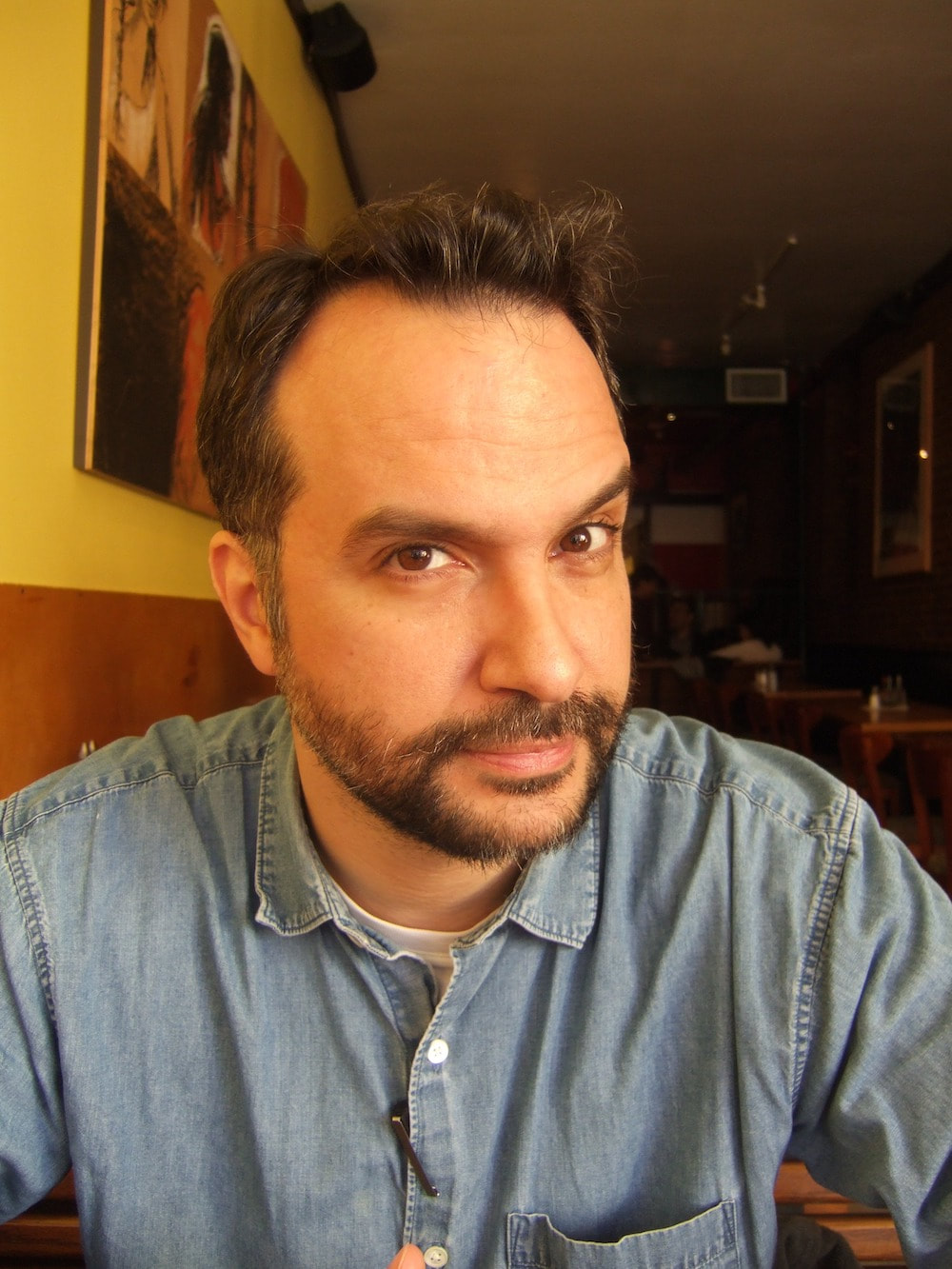
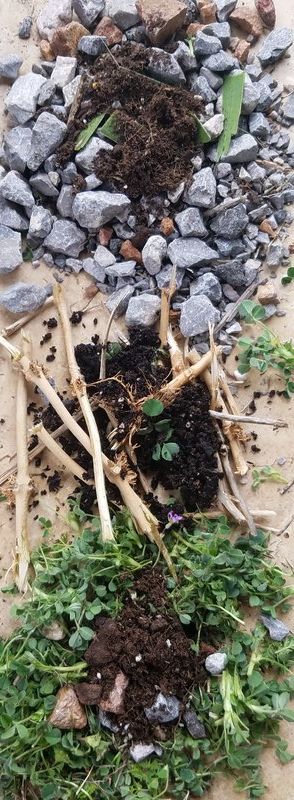

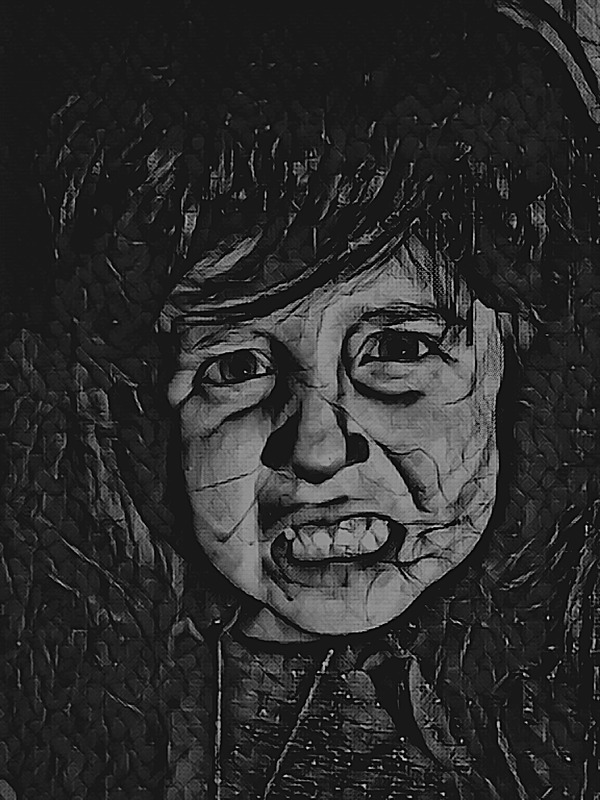

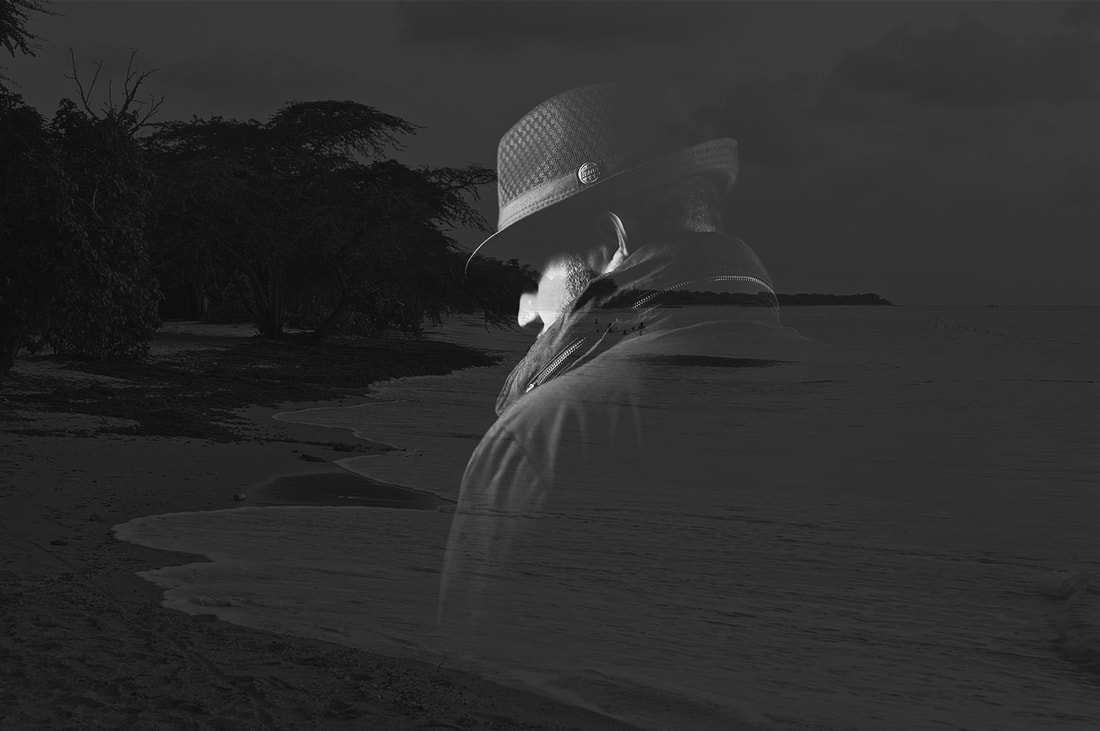
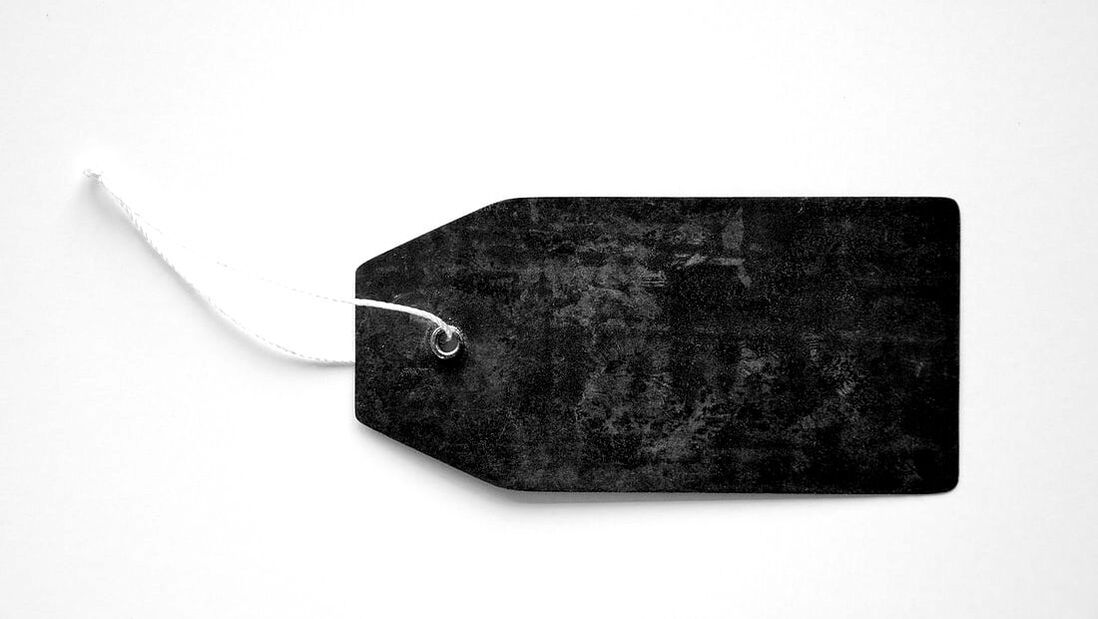

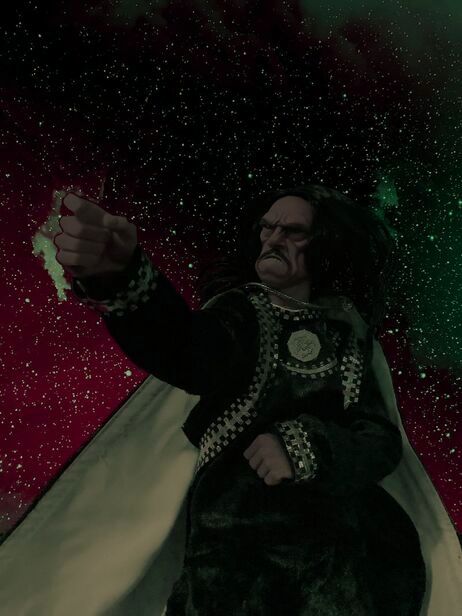

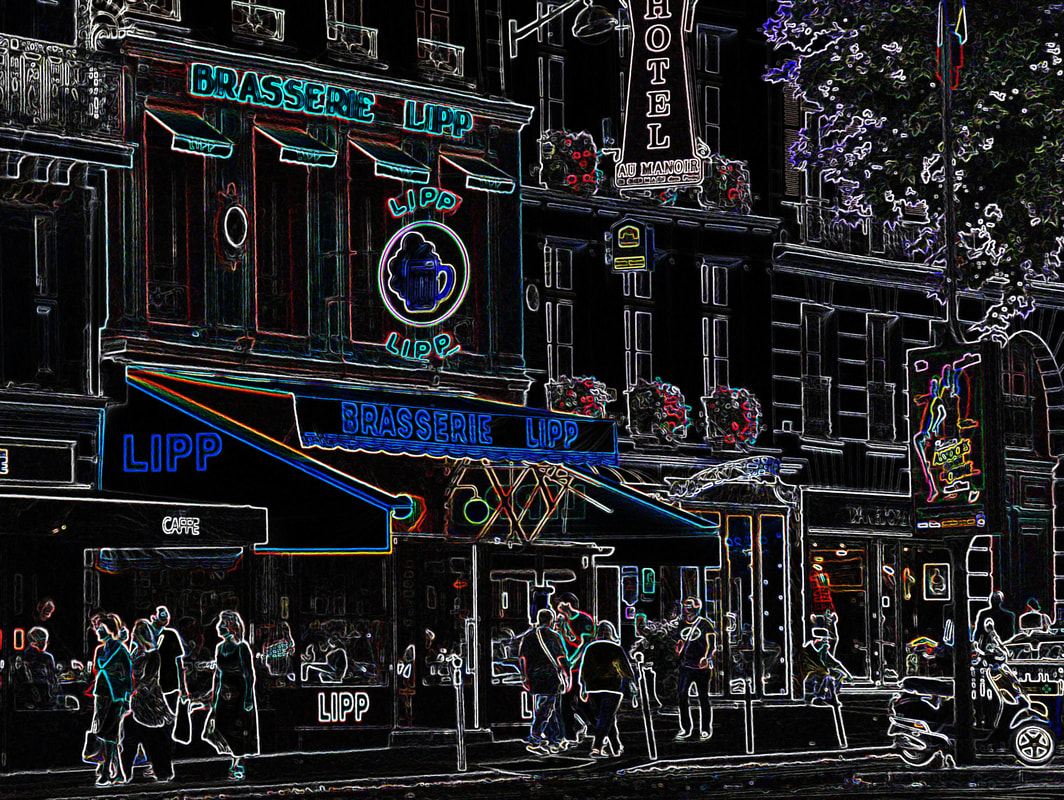

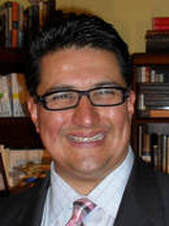
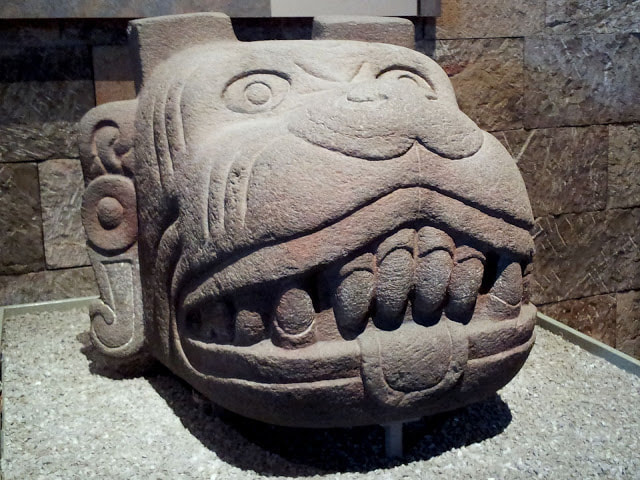
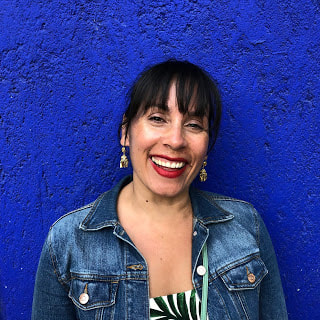

 RSS Feed
RSS Feed